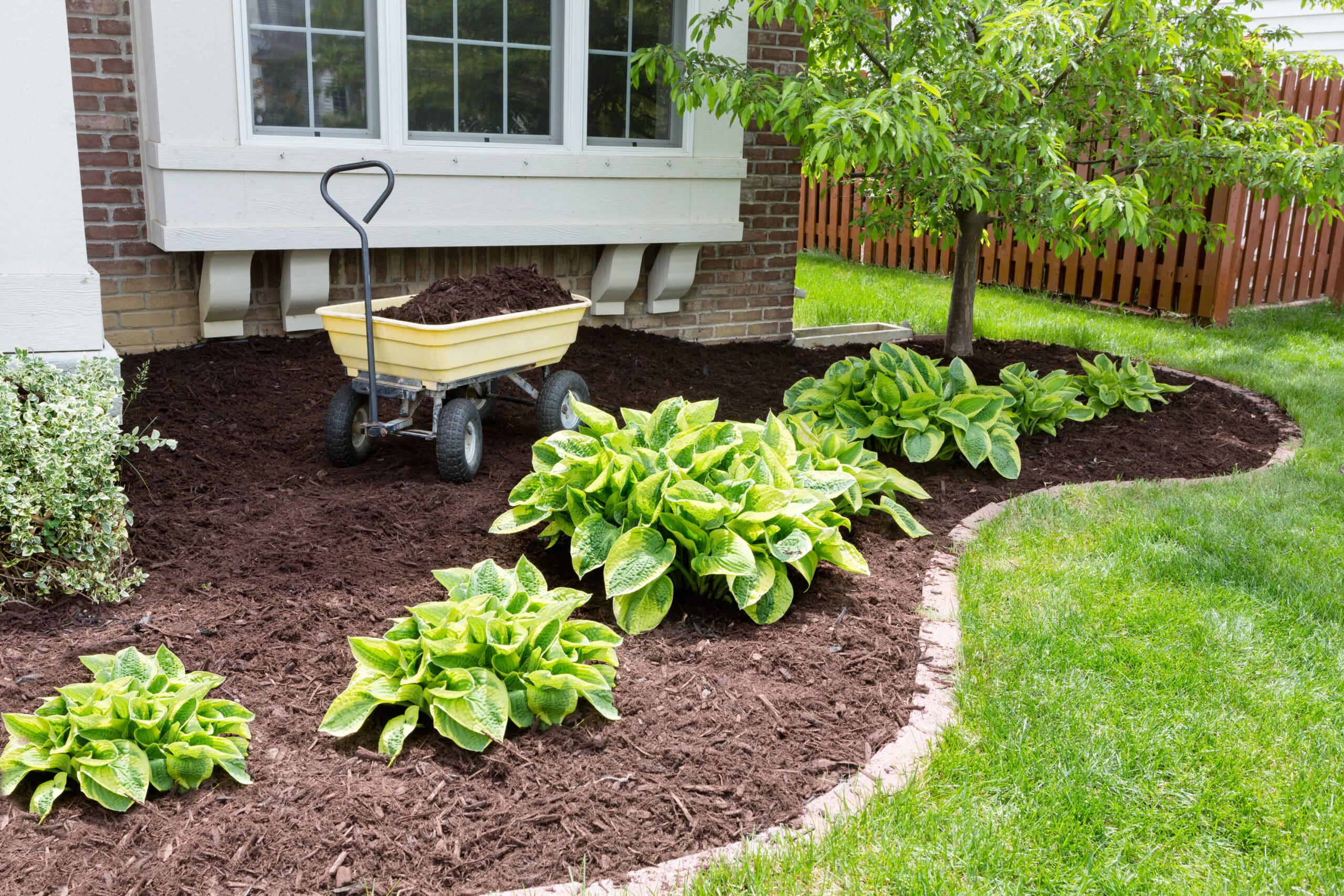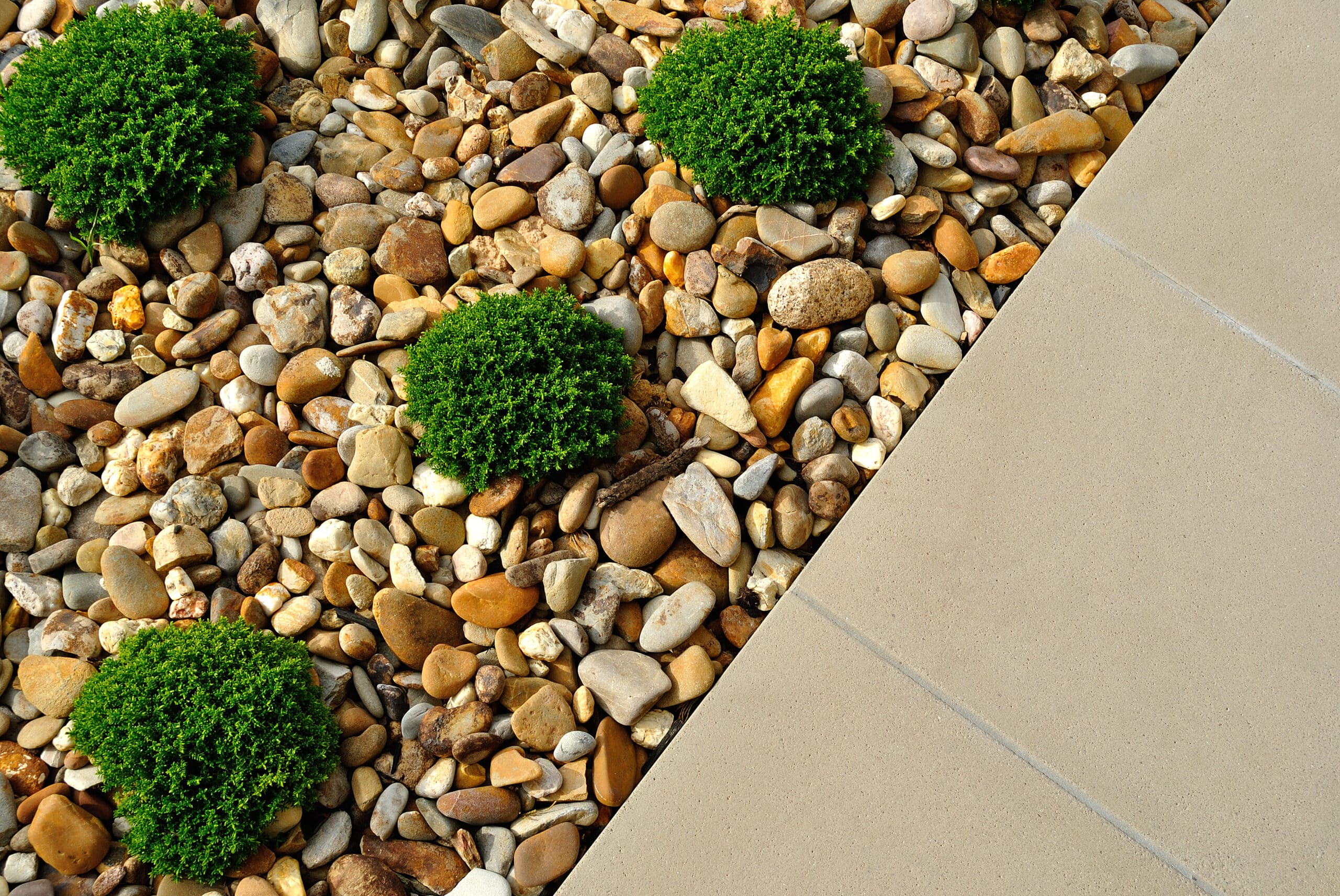As spring blossoms and nature comes alive, it is easy to be swept up in the beauty of it all. However, understanding that as beautiful as it all is, it takes maintenance to keep everything looking amazing. When it comes to landscaping your beds, you will most likely find yourself at a crossroads. Mulch or rock? Honestly, there are pros and cons for each. Both serve a similar purpose by giving your landscaping shape and beauty while also aiding in weed prevention. It is important to understand your goals with your material choice in order to make a well-rounded decision for your landscaping needs.

First, there are many positives to selecting mulch for your bed cover. Mulch is an organic substance that breaks down throughout the year. This naturally replenishes the soil with the nutrients your plants need. It also naturally shades the soil below keeping it cool and reducing evaporation. This allows your plants to stay well hydrated and keeps you from watering them as often. While also retaining water, the mulch acts as an insulator. Keeping plants cool through the hot seasons and warm throughout the cool seasons. Mulch also reduces erosion and compaction by shielding the soil from heavy rains and winds. This cover is also cheaper initially to install.
Even with all the benefits of mulch, there are also some negatives to consider. As mentioned above, mulch has a cheaper initial installation cost. Mulch requires annual replacement and that means money and time every year. Timing is key to the installation of mulch. If you place your mulch too soon, the soil will stay cooler longer. This could result in late blooms. Install it too late and the soil may already be riddled with seeds. Too much mulch can actually negate all that is good about it. This can suffocate roots. It can even hold too much water, thus waterlogging plants or introducing diseases. Even trapping heat by reducing airflow, which overheats plants. As a home inspection company, our biggest negative is that mulch will become a natural feeding ground for insects. If mulch is in the beds by your home, it is like laying out the buffet and then ringing the dinner bell.

The other popular bed cover to consider is rock. As a complete foil to mulch, rocks have a cheaper overall cost as they do not need annual replacement. Rocks also require less maintenance as they are more resistant to wind and other eroding factors due to weight. That being said, rocks make great coverage for plants on hillsides due to their resistance to eroding factors. Unlike mulch, rocks are not decaying, thus they are less likely to attract insects. This makes rock a smart choice for beds around your home.
Rock does also have some downsides. Unlike mulch, the initial investment comes with a higher price tag. They are also not as light as mulch and that can make installation more challenging. Rocks are also not decaying, so they contribute no nutrients to plants. Larger rocks may leave gaps and spaces for weed seeds to land and sprout thus aiding in further growth in more gaps and spaces of your rock bed. Rock contributes to higher heat for your plants. Dark rock absorbs heat, thus heating the soil, while lighter rock reflects the heat right towards your plants.
There are many differences between rock and mulch. Both covers will help create beautiful landscaping, especially with the color choices available for both. Mulch is cheaper upfront and usually easier to install. It also is organic and adds nutrients to your plants. Rock is low maintenance and does not attract pests, which makes it a smart choice for beds around your home. Overall, it is important to know your goals with your beds in order to determine the right material for you.
